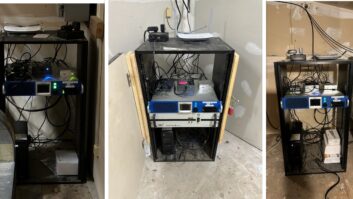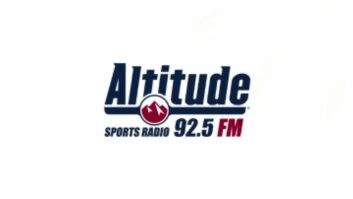The Media Bureau at the Federal Communications Commission has decided to renew a Nebraska station’s license for only a single year — instead of the full-term of eight years — after the station remained silent without authorization and failed to meet its online public inspection file requirements. 
An application to renew the license of station KWTN(FM) in Allen, Neb., was filed on Jan. 29, 2021. As part of an earlier consent decree, the previous owner of the station, Cochise Media Licenses LLC, was required to donate the station’s license to a tribal or nonprofit entity. That organization was the Winnebago Tribe of Nebraska, who took over the license at a time when the station was silent.
Subsequently, the station ended up being silent for four periods stretching from 2018 into 2021, meaning that the station was silent for almost the entirety of its license term and the majority of the extended term it received. In its application, the licensee noted that new transmission equipment needed to be purchased and that the location of the station at the time of the assignment was not adequate to cover Winnebago’s tribal lands. The station has since been relocated to a new site and is licensed and operating at that location.
But in its order delivered to Winnebago on Nov. 29, the Media Bureau reminded the licensee that silence instead of operation is a fundamental failure when it comes to serving a broadcast station’s community of license. A silent station offers no public service programming, including emergency alert notifications, the bureau said. And even brief periods of station operation that are sandwiched between prolonged periods of silence are of little value because the local audience is not accustomed to tuning into the station’s frequency.
[See Our Business and Law Page]
The Media Bureau was thus tasked with determining several factors when considering KWTN’s license renewal application: one, had the station has served the public interest; two, are there significant violations of the Communications Act or FCC Rules; and three, are there any additional violations that constitute a pattern of abuse. If a licensee fails to meet these standards, then the commission can consider denying the renewal application request or perhaps granting the application on certain terms and conditions.
In this case, the bureau found that the extensive periods of silence show that the licensee’s conduct has fallen short of that which would warrant routine license renewal.
As a result, the bureau concluded that a short-term license renewal for the station — of one year — was the most appropriate sanction. The bureau decided this was the best course (rather than designating the application for a hearing, for example) because the bureau recognized that Winnebago has invested substantial resources to overcome specific issues, including the purchase of new transmission equipment, in its effort to broadcast programming to tribal lands.
“This limited renewal period will afford the commission an opportunity to review the station’s public service performance … and to take whatever corrective actions, if any, that may be warranted at that time,” the bureau said in its order.
The Media Bureau also entered into a consent decree with Winnebago over a violation of the online public inspection rule file. As a result, Winnebago is required to put a comprehensive compliance plan in place to ensure all public inspection file obligations are met in the year ahead, followed by the submission of a compliance report in a year’s time.












